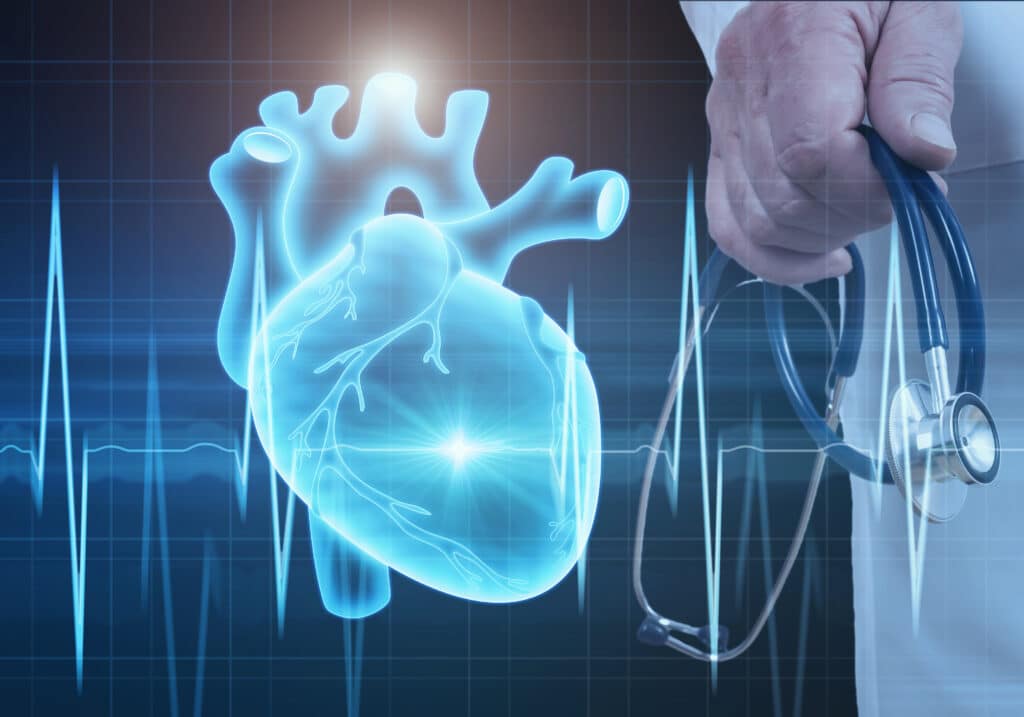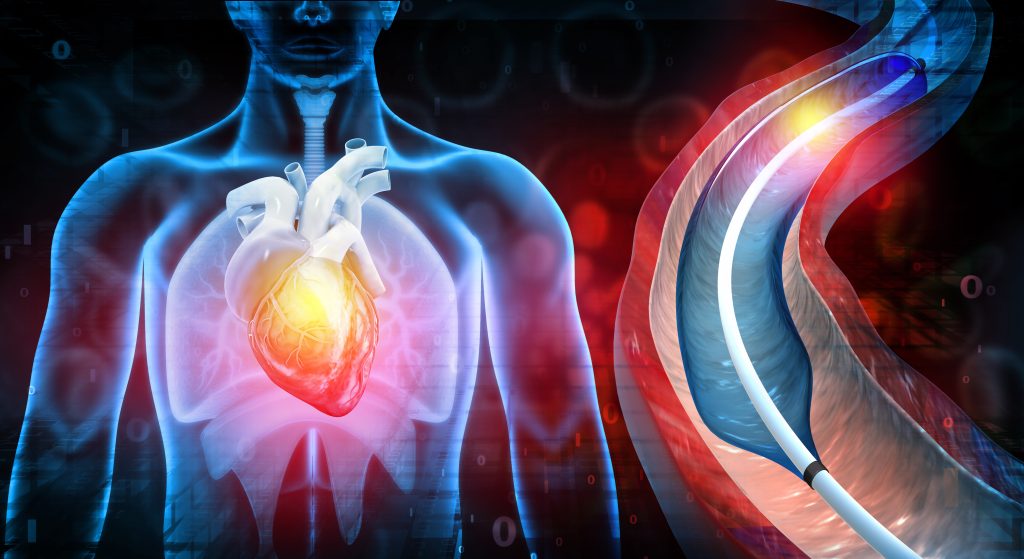Understanding the Importance of Cardiology in Modern Healthcare Services
Cardiology plays a critical duty in contemporary healthcare, particularly as heart condition remains to be the leading reason of mortality worldwide. Advancements in diagnostics and therapy have changed patient treatment, making it possible for earlier interventions and improved outcomes. The change in the direction of precautionary cardiology encourages people to manage their health and wellness proactively. As innovation remains to progress, the combination of ingenious solutions might better redefine cardiology's effect on public health and wellness, motivating a better evaluation of arising patterns and their effects.
The Prevalence of Cardiovascular Disease and Its Effect On Public Health
Although heart problem continues to be the leading cause of fatality worldwide, its effect extends far past private patients to impact public health systems and economies. The high occurrence of heart problem puts a substantial pressure on health care resources, requiring increased financing for treatment, recovery, and avoidance programs. Public health and wellness campaigns must address danger variables such as excessive weight, smoking cigarettes, and inactive way of livings, which contribute considerably to the rising incidence of heart conditions.Moreover, the economic concern related to cardiovascular disease is enormous, encompassing not only straight medical expenses however likewise indirect expenses associated to shed productivity and premature death. Neighborhoods face obstacles in managing these expenses, commonly causing differences in healthcare gain access to and outcomes. As the populace ages and lifestyle-related threats proceed to intensify, the urgency for effective cardiology treatments becomes paramount. Resolving heart illness is not only an issue of individual health and wellness yet additionally an essential public health concern.
Developments in Heart Diagnostics and Imaging Techniques
Recent developments in cardiac diagnostics and imaging methods have actually changed the area of cardiology, boosting the capacity to monitor and detect cardiovascular disease. Strategies such as heart MRI, CT angiography, and echocardiography have actually become increasingly innovative, providing in-depth pictures of cardiac frameworks and features. These techniques enable the very early recognition of problems like coronary artery condition, heart failing, and valvular disorders.Moreover, developments in non-invasive diagnostics, such as wearable innovation and remote monitoring tools, have empowered people and medical care suppliers. These devices promote real-time tracking of heart rhythms and other essential indications, leading to timely treatments. Additionally, expert system is being integrated right into imaging evaluation, boosting accuracy and performance in diagnosis.
Advancements in Therapy Options for Heart Issues
Recent innovations in cardiology have actually caused substantial advancements in therapy alternatives for heart conditions. These include advanced medical techniques that enhance step-by-step end results and emerging drugs that offer brand-new methods for treatment. As the area evolves, these technologies play a crucial role in boosting individual treatment and results.
Advanced Surgical Techniques
Developments in surgical strategies have transformed the landscape of cardiology, using brand-new expect individuals with heart conditions. Minimally intrusive treatments, such as catheter-based interventions, have substantially reduced recuperation times and healthcare facility stays. Strategies like robotic-assisted surgical procedure boost precision, enabling specialists to navigate complicated anatomical frameworks with greater accuracy. Advancements in imaging technology assist in real-time visualization during procedures, improving results. Transcatheter aortic shutoff replacement (TAVR) exemplifies a breakthrough in treating aortic constriction, allowing shutoff replacement without open-heart surgical procedure. Furthermore, hybrid approaches that combine catheter-based and surgical approaches provide customized solutions for numerous heart problems. These innovative surgical techniques not just boost client safety and security but likewise broaden therapy choices, highlighting the critical duty of advancement in contemporary cardiology techniques.
Arising Drugs and Treatments
As the landscape of cardiology remains to develop, emerging treatments and drugs play a crucial duty in improving therapy options for heart disease. Innovations such as unique anticoagulants and advanced lipid-lowering representatives have transformed the monitoring of cardio conditions, significantly lowering individual morbidity and mortality. Additionally, the growth of genetics treatments and regenerative medication uses encouraging opportunities for treating conditions previously deemed irreversible. Professional tests are continually exposing the efficacy of these treatments, pushing the borders of conventional treatments. In addition, the combination of digital health modern technologies facilitates customized medicine, permitting tailored treatment plans based upon genetic and lifestyle factors. Jointly, these advancements underscore the dynamic nature of cardiology, boosting person results and redefining requirements of treatment in modern healthcare.
The Duty of Preventive Cardiology in Individual Care
Preventative cardiology plays a vital role in patient treatment by concentrating on the identification of risk variables that contribute to heart problem. Through way of living adjustment approaches and early detection methods, doctor can successfully decrease the occurrence of cardiovascular occasions - Dr Garcia. This positive method not just enhances patient results however also advertises lasting health
Danger Variable Identification
While cardio conditions remain a leading reason of morbidity and death worldwide, reliable risk variable recognition works as a cornerstone of preventive cardiology. Determining threat elements such as high blood pressure, diabetes mellitus, household, and hyperlipidemia background is crucial for early intervention. Healthcare specialists make use of various evaluating approaches to assess these aspects, enabling customized safety nets. Additionally, comprehending a patient's way of living selections, such as smoking cigarettes and physical inactivity, better educates threat analyses. This thorough examination makes it possible for medical professionals to create individualized treatment plans targeted at mitigating risks. By focusing on threat variable recognition, medical care systems can enhance client results and minimize the general burden of heart diseases, ultimately adding to improved public health techniques and resource allotment.
Way Of Living Alteration Techniques
A wide variety of studies highlights the vital role of way of life alteration strategies in decreasing cardio disease risk. These strategies include nutritional changes, increased exercise, smoking cessation, and weight administration. By taking on a heart-healthy diet plan rich in fruits, veggies, whole grains, and lean healthy proteins, people can decrease cholesterol degrees and high blood pressure. Normal exercise reinforces the heart and boosts overall cardio health and wellness. Furthermore, giving up cigarette smoking greatly minimizes the threat of heart problem and boosts recovery prices for those with status quo. Weight management additionally contributes to cardio health and wellness by minimizing other danger aspects such as diabetes mellitus and hypertension. Applying these way of living transforms not just advertises individual well-being however also works as a cornerstone of precautionary cardiology in person treatment.
Very Early Discovery Techniques
Way of living modifications substantially add to decreasing heart disease risks, but they are most effective when coupled with very early detection methods. Precautionary cardiology emphasizes the value of determining prospective heart concerns prior to they intensify right into major conditions. Techniques such as blood stress surveillance, cholesterol testing, and progressed imaging innovations like echocardiograms play important functions in reviewing cardiovascular wellness. Biomarkers and hereditary testing likewise boost the accuracy of very early detection, permitting customized preventative strategies. Normal cardiac threat examinations equip doctor to interfere proactively, potentially protecting against cardiovascular disease and strokes (Cardiologist near advice me). By incorporating these early discovery approaches right into click here for more info routine care, people can profit from prompt way of living treatments and targeted therapies, eventually enhancing and boosting results lifestyle
Integrating Innovation Into Cardiology Practices
As improvements in modern technology proceed to improve numerous fields, the assimilation of ingenious devices and systems into cardiology practices has actually become essential for boosting client care and outcomes. Telemedicine systems permit cardiologists to keep track of people remotely, boosting access to care while reducing the concern on medical care centers. Wearable gadgets, such as smartwatches, make it possible for constant heart price tracking, informing both clients and physicians to prospective problems in real-time. Furthermore, synthetic knowledge (AI) is being made use of to evaluate huge quantities of cardiac data, helping in early medical diagnosis and customized treatment strategies. Advanced imaging strategies, including 3D echocardiography, boost visualization of heart structures, resulting in extra exact treatments. Digital health records (EHRs) streamline person information administration, guaranteeing that cardiologists have prompt accessibility to essential information. Together, these technological developments are changing cardiology, promoting positive monitoring and enhanced health and wellness results for clients with cardiovascular conditions.
The Importance of Person Education and Engagement
Person education and engagement play a pivotal duty in the management of cardiovascular health and wellness. By gearing up individuals with understanding regarding their conditions, treatment choices, and way of life adjustments, medical care carriers equip people to take an energetic role in their care. This proactive strategy can result in improved adherence to recommended drugs, dietary modifications, and exercise regimens, inevitably lowering the danger of complications.Engagement additionally fosters a strong patient-provider connection, urging open communication and depend on. When patients really feel informed and included, they are more probable to voice issues and ask inquiries, which can cause much better clinical results. Furthermore, educational resources, such as workshops or electronic platforms, can boost understanding about his and advertise self-management approaches. Overall, prioritizing patient education and learning and engagement is vital for enhancing cardio health and wellness, boosting lifestyle, and lowering healthcare costs connected with heart diseases.
Future Fads in Cardiology and Their Potential Effect

Regularly Asked Inquiries
What Lifestyle Adjustments Can Minimize Heart Disease Threat?
The existing question addresses lifestyle changes that can greatly reduce heart condition risk. Dr Garcia. Adopting a well balanced diet plan, engaging in normal physical activity, keeping a healthy and balanced weight, handling stress, and preventing cigarette can notably boost cardio health
Just How Can I Recognize Very Early Indications of Heart Issues?
Identifying very early signs of heart troubles involves tracking symptoms such as chest discomfort, shortness of breath, exhaustion, and irregular heartbeat. Prompt recognition of these indicators can prompt needed clinical evaluation and treatment for far better end results.
What Are the Distinctions Between Cardiologists and Heart Surgeons?
The distinctions between cardiologists and cardiac specialists hinge on their functions; cardiologists mostly handle and diagnose heart problems via non-invasive methods, while cardiac surgeons do operations to correct structural heart issues. Each plays an important, distinct role.

Exactly how Usually Should I Get My Heart Health And Wellness Checked?
The frequency of heart medical examination differs based on private threat elements. Typically, grownups should undergo analyses each to two years, while those with present problems may require even more regular evaluations as recommended by health care professionals.
What Duty Does Genetics Play in Cardiovascular Disease Threat?
Genes greatly influences heart condition risk, with familial patterns suggesting acquired problems. Details genes can predispose people to hypertension, cholesterol concerns, and various other cardiovascular problems, highlighting the value of hereditary testing in reviewing heart health. Heart illness remains the leading cause of fatality globally, its influence expands far past private clients to impact public health and wellness systems and economies. Public health campaigns must address threat variables such as excessive weight, cigarette smoking, and sedentary way of lives, which add significantly to the increasing incidence of heart conditions.Moreover, the financial burden associated with heart condition is immense, incorporating not just direct medical prices yet likewise indirect expenditures associated to lost performance and premature mortality. Preventive cardiology plays an important function in patient treatment by concentrating on the identification of risk elements that contribute to heart disease. Artificial intelligence (AI) and equipment learning are improving diagnostics and client surveillance, making it possible for early detection of heart diseases. The differences in between cardiologists and cardiac doctors lie in their duties; cardiologists mainly manage and detect heart problems through non-invasive techniques, while cardiac doctors execute surgical treatments to deal with structural heart issues.